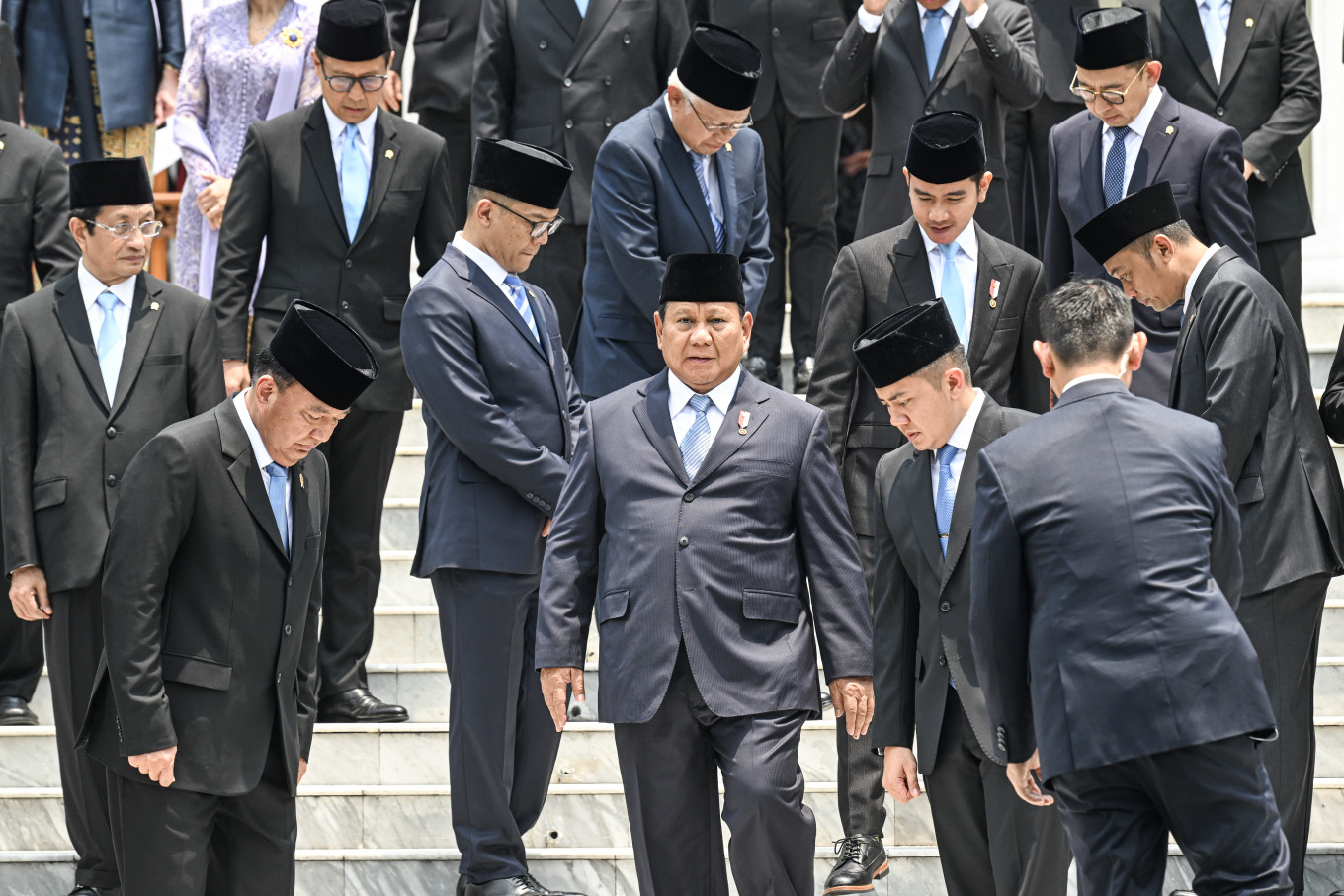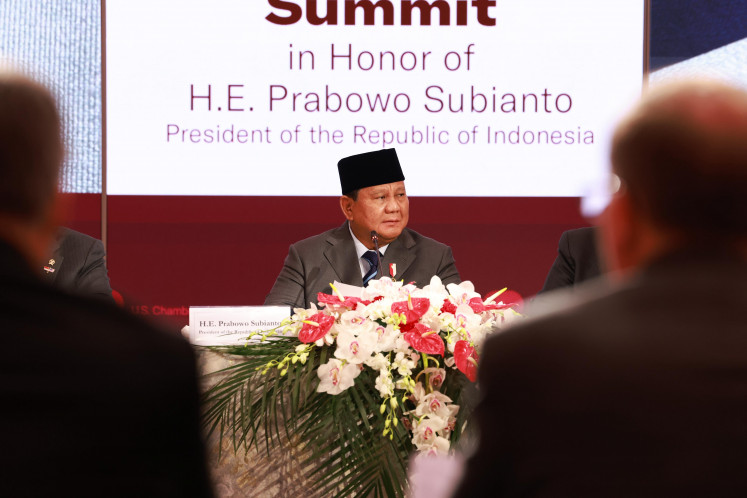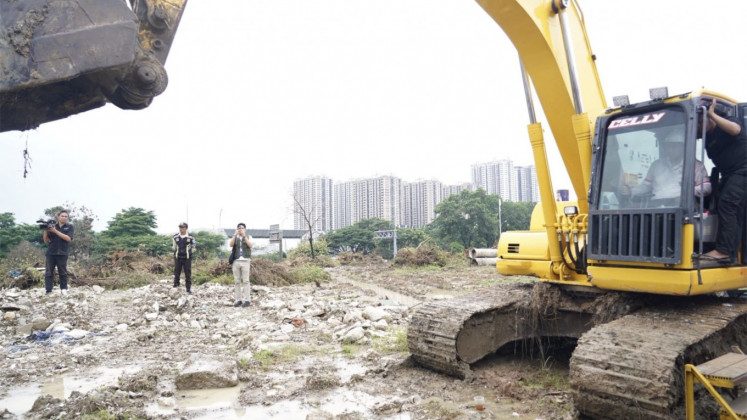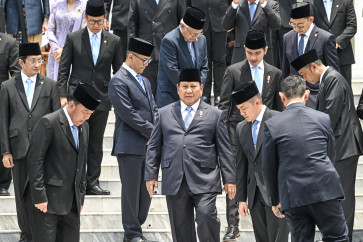Popular Reads
Top Results
Can't find what you're looking for?
View all search resultsPopular Reads
Top Results
Can't find what you're looking for?
View all search resultsPrabowo’s colorful priorities of the Red-White Cabinet
The inclusion of downstreaming in the nomenclature of the Investment Ministry also suggests an extension in Prabowo’s downstreaming policy, from critical minerals to broader commodities.
Change text size
Gift Premium Articles
to Anyone
 Red and White: The ministers of President Prabowo Subianto's cabinet gather for a group photo after their swearing-in ceremony at the Presidential Palace in Jakarta on Oct. 21. Prabowo's new cabinet includes key members of his predecessor's team and suggests he will continue his main policies, analysts have said. (Antara Foto/Hafidz Mubarak A)
Red and White: The ministers of President Prabowo Subianto's cabinet gather for a group photo after their swearing-in ceremony at the Presidential Palace in Jakarta on Oct. 21. Prabowo's new cabinet includes key members of his predecessor's team and suggests he will continue his main policies, analysts have said. (Antara Foto/Hafidz Mubarak A)
P
rabowo Subianto, the eighth president of Indonesia, announced his Red and White Cabinet on the same day as his inauguration on Oct. 20. President Prabowo expanded the number of ministerial positions to 48 with support from 56 deputy ministers, the largest cabinet since the New Order.
There are two ways to understand Prabowo’s option for a bloated cabinet. First, Prabowo aims to cover as many of his political promises as possible in an immediate term, spanning across various sectors that he considers priorities under his five years of leadership. Second, it is an “accommodative cabinet”, based not only on the successful political coalition in his presidential campaign, but also to incorporate all supporting parties and groups, representing Indonesia’s diverse interests and stances.
On one occasion, Prabowo mentioned the importance of having a large cabinet as it reflects Indonesia as a big nation. Although many are pessimistic regarding the possible drawbacks of coordination issues and conflicting agendas among the ministries, it is still too early to judge.
The most obvious pattern of Prabowo’s cabinet is the separation of multiple ministries, which divides specific functions across various issues. For instance, the Office of the Coordinating Political, Law and Human Rights Minister, as well as the Public Works and Housing Ministry, which are now split. The roles of the coordinating minister offices have also been directed to be more specific in addressing sectoral priorities, such as for infrastructure and food, as well as general areas including community empowerment and economic affairs.
The creation of the Office of Coordinating Infrastructure Minister signals Prabowo’s close attention to continuing the legacy of his predecessor in building adequate economic facilities. This goes hand-in-hand with a focus on eradicating poverty by shrinking the national wealth gap under the Transmigration Ministry and the appointment of a special agency for poverty alleviation.
In his inaugural remarks, President Pabowo placed emphasis upon providing affordable and nutritious food for all citizens. There is no strong nation when the people remain in hunger. This justifies the formation of the Office of the Coordinating Food Minister, which will coordinate with many strategic ministries including agriculture, maritime affairs and fisheries, environment and forestry, as well as the National Nutrition Agency.
Indonesian diaspora and migrant workers also stand out as priorities under Prabowo, as indicated by the assignment of a ministry focusing on this matter. The creation of the Protection of Indonesian Migrant Workers Ministry indicates Prabowo’s concern with the matter, which is further evidenced by the appointment of two deputy ministers under this ministry.


















